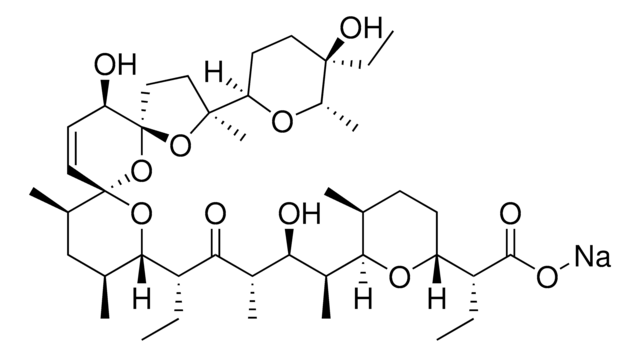30-0120
L-(+)-Tartaric acid
SAJ first grade, ≥99.5%
Synonym(s):
(2R,3R)-(+)-Tartaric acid, L-Threaric acid
About This Item
Recommended Products
grade
SAJ first grade
vapor density
5.18 (vs air)
Assay
≥99.5%
form
solid
autoignition temp.
797 °F
availability
available only in Japan
mp
170-172 °C (lit.)
solubility
water: soluble 150 g/L at 25 °C
density
1.76 g/cm3 at 20 °C
SMILES string
O[C@H]([C@@H](O)C(O)=O)C(O)=O
InChI
1S/C4H6O6/c5-1(3(7)8)2(6)4(9)10/h1-2,5-6H,(H,7,8)(H,9,10)/t1-,2-/m1/s1
InChI key
FEWJPZIEWOKRBE-JCYAYHJZSA-N
Looking for similar products? Visit Product Comparison Guide
Signal Word
Danger
Hazard Statements
Precautionary Statements
Hazard Classifications
Eye Dam. 1
Storage Class Code
11 - Combustible Solids
WGK
WGK 1
Flash Point(F)
302.0 °F - closed cup
Flash Point(C)
150 °C - closed cup
Regulatory Listings
Regulatory Listings are mainly provided for chemical products. Only limited information can be provided here for non-chemical products. No entry means none of the components are listed. It is the user’s obligation to ensure the safe and legal use of the product.
JAN Code
30-0120-2-25G-J:
30-0120-5-500G-J:
Certificates of Analysis (COA)
Search for Certificates of Analysis (COA) by entering the products Lot/Batch Number. Lot and Batch Numbers can be found on a product’s label following the words ‘Lot’ or ‘Batch’.
Already Own This Product?
Find documentation for the products that you have recently purchased in the Document Library.
Our team of scientists has experience in all areas of research including Life Science, Material Science, Chemical Synthesis, Chromatography, Analytical and many others.
Contact Technical Service







